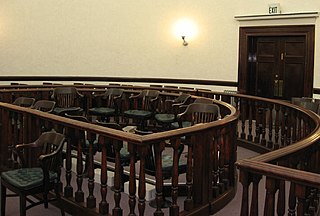
A jury is a sworn body of people (jurors) convened to hear evidence, make findings of fact, and render an impartial verdict officially submitted to them by a court, or to set a penalty or judgment.
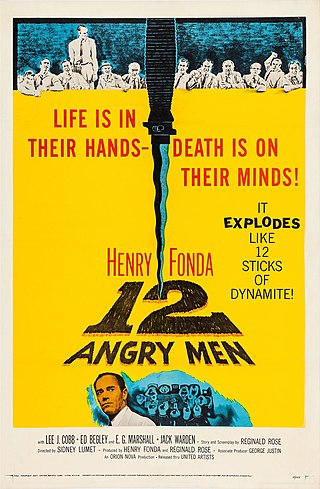
12 Angry Men is a 1957 American independent legal drama film directed by Sidney Lumet, adapted from a 1954 teleplay of the same name by Reginald Rose. The film tells the story of a jury of 12 men as they deliberate the conviction or acquittal of a teenager charged with murder on the basis of reasonable doubt; disagreement and conflict among them force the jurors to question their morals and values. It stars Henry Fonda, Lee J. Cobb, Ed Begley, E. G. Marshall, and Jack Warden.
Not proven is a verdict available to a court of law in Scotland. Under Scots law, a criminal trial may end in one of three verdicts, one of conviction ("guilty") and two of acquittal.

Maharaj Krishen Raina, popularly known as M. K. Raina, is an Indian theatre actor and director. Raina graduated from National School of Drama in 1970 with the Best Actor award.

Basu Chatterjee was an Indian film director and screenwriter in Hindi Cinema.Through the 1970s and 1980s, he became associated with what came to be known as middle cinema or middle-of-the-road cinema filmmakers, such as Hrishikesh Mukherjee and Basu Bhattacharya, whom he assisted on Teesri Kasam (1966). Like their films, his films dealt with light-hearted stories of middle-class families often in urban settings, focusing on marital and love relationships.

The Jury is a British television serial broadcast in 2002. The series was the first ever to be allowed to film inside the historic Old Bailey courthouse.
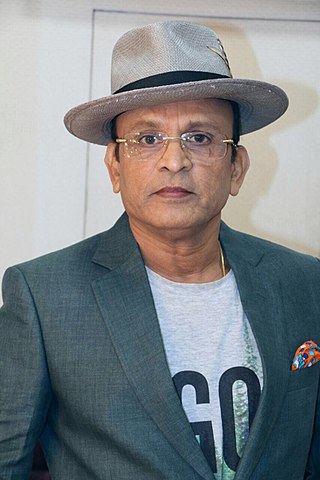
Annu Kapoor is an Indian actor, singer, director, radio disc jockey, and television presenter who has appeared in over a hundred films, as well as television series. His career has spanned over 40 years as an actor, producer, director and singer. Besides acting, he also does a Radio show, named Suhaana Safar With Annu Kapoor which airs on 92.7 big FM. He has won numerous awards in his career, including two National Film Awards, one Filmfare Award and two Indian Television Academy Awards.

12 Angry Men is a 1997 American made-for-television drama film directed by William Friedkin, adapted by Reginald Rose from his original 1954 teleplay of the same title. It is a remake of the 1957 film of the same name. The film aired on August 17, 1997 on Showtime.

Twelve Angry Men is a play by Reginald Rose adapted from his 1954 teleplay of the same title for the CBS Studio One anthology television series. Staged first in San Francisco in 1955, the Broadway debut came 50 years after CBS aired the play, on October 28, 2004, by the Roundabout Theatre Company at the American Airlines Theatre, where it ran for 328 performances.
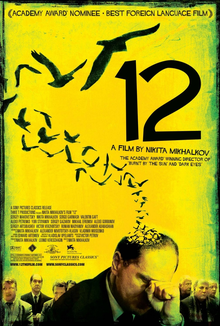
12 is a 2007 Russian legal drama film by director, screenwriter, producer and actor Nikita Mikhalkov. The film is a Russian-language remake of Sidney Lumet's 1957 film 12 Angry Men, which in turn was based on Reginald Rose's 1955 stage play, Twelve Angry Men, itself based on Rose's 1954 teleplay of the latter's same name.

Caylee Marie Anthony was an American toddler who lived in Orlando, Florida, with her mother, Casey Marie Anthony, and her maternal grandparents, George and Cindy Anthony. On July 15, 2008, Caylee was reported missing in a 9-1-1 call made by Cindy, who said she had not seen the child for thirty-one days. According to what Cindy told police dispatchers, Casey had given varied explanations as to Caylee's whereabouts before eventually saying she had not seen her daughter for weeks. Casey later called police and falsely told a dispatcher that Caylee had been kidnapped by a nanny on June 9. Casey was charged with first-degree murder in October 2008 and pleaded not guilty.
Twelve Angry Men is an American courtroom drama written by Reginald Rose concerning the jury of a homicide trial. It was broadcast initially as a television play in 1954. The following year it was adapted for the stage. It was adapted for a film of the same name, directed by Sidney Lumet, and released in 1957. Since then it has been given numerous remakes, adaptations, and tributes.
"Twelve Angry Men" is a 1954 teleplay directed by Franklin J. Schaffner and written by Reginald Rose for the American anthology television series Studio One. It follows the titular twelve members of a jury as they deliberate a supposedly clear-cut murder trial, and details the tension among them when one juror argues that the defendant might not be guilty. Initially staged as a CBS live production on September 20, 1954, the drama was later rewritten for the stage in 1955 under the same title, and as a feature film in 1957 titled 12 Angry Men. The episode garnered three Emmy Awards for writer Rose, director Schaffner, and Robert Cummings as Best Actor.

K. K. Raina is an Indian film, television and theatre character actor and award-winning script writer, who is best known for his roles as Juror #8 in the 1986 film Ek Ruka Hua Faisla, a remake of 12 Angry Men, and Byomkesh Bakshi's associate Ajit Kumar Banerji in the 1993 Doordarshan detective series Byomkesh Bakshi. Raina won the Filmfare Award for Best Dialogue in 1998 for the Rajkumar Santoshi film China Gate.
Wainwright vs. Witt, 469 U.S. 412 (1985), was a U.S. Supreme Court case concerning a criminal defendant, Johnny Paul Witt, who argued that his Sixth and Fourteenth Amendment rights were violated when he was sentenced to death for first degree murder by the state of Florida. He argued that the trial court had unconstitutionally hand-picked a jury during the voir dire process. This was because certain people were excused from the jury because they admitted pre-trial, that their decision of guilty or not guilty toward capital punishment would be swayed due to personal or religious beliefs.
Mishra is an Indian character actor. He is an alumnus of the National School of Drama.
"12 and a Half Angry Men" is the sixteenth episode of the eleventh season and the 204th overall episode of the animated comedy series Family Guy. It aired on Fox in the United States on March 24, 2013, and is written by Ted Jessup and directed by Pete Michels. In the episode, Mayor Adam West is brought on trial for murder. Brian Griffin is on the jury and tries to clear his name. The episode was inspired by the 1957 film classic 12 Angry Men.
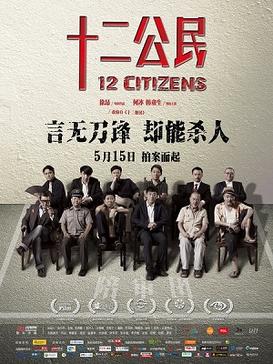
12 Citizens is a 2014 Chinese suspense crime drama film directed by Xu Ang. It was shown at the 2014 Rome Film Festival on October 19, 2014 and was released in China on May 15, 2015. The plot is based on and heavily references the plot of the 1954 teleplay Twelve Angry Men by Reginald Rose. Various localization changes were made, such as changing the original, everyman protagonist into a Prosecutor of the Chinese Communist Party.

Neeraj Kabi is an Indian film entertainer and theatre actor, theatre director, and acting coach known for his works in International films and Hindi cinema, theatre, and television.

Darshan Ashwin Trivedi is an Indian film director and academician best known for his contribution for Gujarati cinema. He is known for his movies Mrugtrushna, Mara Pappa Superhero, Lakiro and Keri. He is Adjunct faculty at MICA.














